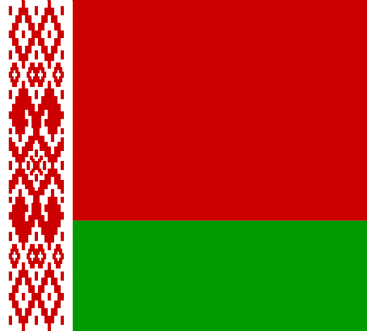Mr. President, as co-chairman of the Helsinki Commission, I take this opportunity to update my colleagues on the situation in Belarus, as I have done on previous occasions. The Belarusian parliamentary elections are scheduled for October 15, and unfortunately, they do not meet the basic commitments outlined by the Organization for Security and Cooperation in Europe (OSCE) concerning free and democratic elections. Moreover, many observers have concluded that the Belarusian government has not made real progress in fulfilling four criteria for international observation of the elections: respect for human rights and an end to the climate of fear; opposition access to the state media; a democratic electoral code; and the granting of real power to the parliament that will be chosen in these elections. Instead, the Helsinki Commission has observed that the Lukashenka regime launched a campaign of intensified harassment in recent days directed against members of the opposition.
We have received reports that just last week, Anatoly Lebedka, leader of the United Civic Party, whom many of my colleagues met when he visited the Senate last year, was roughed up by police after attending an observance marking the first anniversary of the disappearance of a leading member of the democratic opposition Viktor Gonchar and his associate, Anatoly Krasovsky. And just a few days ago, we were informed that Belarusian Popular Front leader Vintsuk Viachorka’s request for air time on Belarusian television to explain why the opposition is boycotting the parliamentary elections was met with a hateful, disparaging diatribe on the main newscast `Panorama.’ This is only the tip of the iceberg. In addition, the Helsinki Commission is receiving reports of detentions, fines and instances of beatings of opposition activists who are promoting a boycott of the elections by distributing leaflets or other literature or holding meetings with voters. In recent weeks, we have also been informed of the refusal to register many opposition candidates on dubious grounds; the seizure of over 100,000 copies of the independent trade union newspaper `Rabochy’; forceful disruptions of public meetings with representatives of the opposition; an apparent burglary of the headquarters of the Social Democratic Party; a ban of the First Festival of Independent Press in Vitebsk, and recent `reminder letters’ by the State Committee on Press for independent newspapers to re-register.
Mr. President, Belarusian opposition parties supporting the boycott have received permission to stage ‘Freedom March III’ this Sunday, October 1. At a number of past demonstrations, police have detained, harassed and beaten participants. Those in Congress who are following developments in Belarus are hopeful that this demonstration will take place peacefully, that authorities do not limit the rights of Belarusian citizens to freedom of association and assembly, and that the Government of Belarus will refrain from acts of repression against the opposition and others who openly advocate for a boycott of these elections.
Mr. President, the Helsinki Commission continues to monitor closely the events surrounding these elections and we will keep the full Senate apprised of developments in the ongoing struggle for democracy in Belarus.





